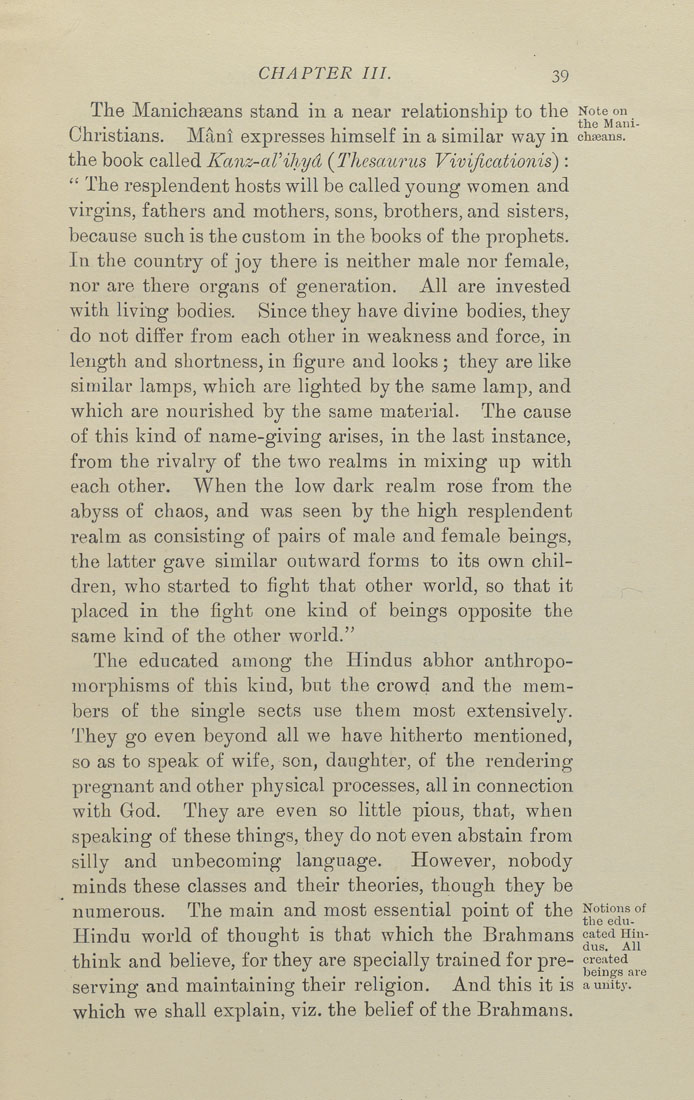Bīrūnī, Muḥammad ibn Aḥmad, Alberuni's India (v. 1)
(London : Kegan Paul, Trench, Trübner & Co., 1910.)
|
||
|
|
|
|
| Page 39 |

CHAPTER III. 39 The Manicheeans stand in a near relationship to the Note on ^. . . ... . the Mani- Christians. Maul expresses himself m a similar way m chajans. the book called Kconz-aVihyd (Thesaurus Vivifieationis): " The resplendent hosts will be called young women and virgins, fathers and mothers, sons, brothers, and sisters, because such is the custom in the books of the prophets. In the country of joy there is neither male nor female, nor are there organs of generation. All are invested with living bodies. Since they have divine bodies, they do not differ from each other in weakness and force, in length and shortness, in figure and looks ; they are like similar lamps, which are lighted by the same lamp, and which are nourished by the same material. The cause of this kind of name-giving arises, in the last instance, from the rivalry of the two realms in mixing up with each other. When the low dark realm rose from the abyss of chaos, and was seen by the high resplendent realm as consisting of pairs of male and female beings, the latter gave similar outward forms to its own chil¬ dren, who started to fight that other world, so that it placed in the fight one kind of beings opposite the same kind of the other world." The educated among the Hindus abhor anthropo¬ morphisms of this kind, but the crowd and the mem¬ bers of the single sects use them most extensively. They go even beyond all we have hitherto mentioned, so as to speak of wife, son, daughter, of the rendering pregnant and other physical processes, all in connection with God. They are even so little pious, that, when speaking of these things, they do not even abstain from silly and unbecoming language. However, nobody minds these classes and their theories, though they be numerous. The main and most essential point of the Notions of ^ the edu- Hindu world of thought is that which the Brahmans catcdHin- ° . . dus. All think and believe, for they are specially trained for pre- created . . ,. ... . -,,... beings are serving and maintaining their religion. And this it is a unity. which we shall explain, viz. the belief of the Brahmans. |
| Page 39 |







